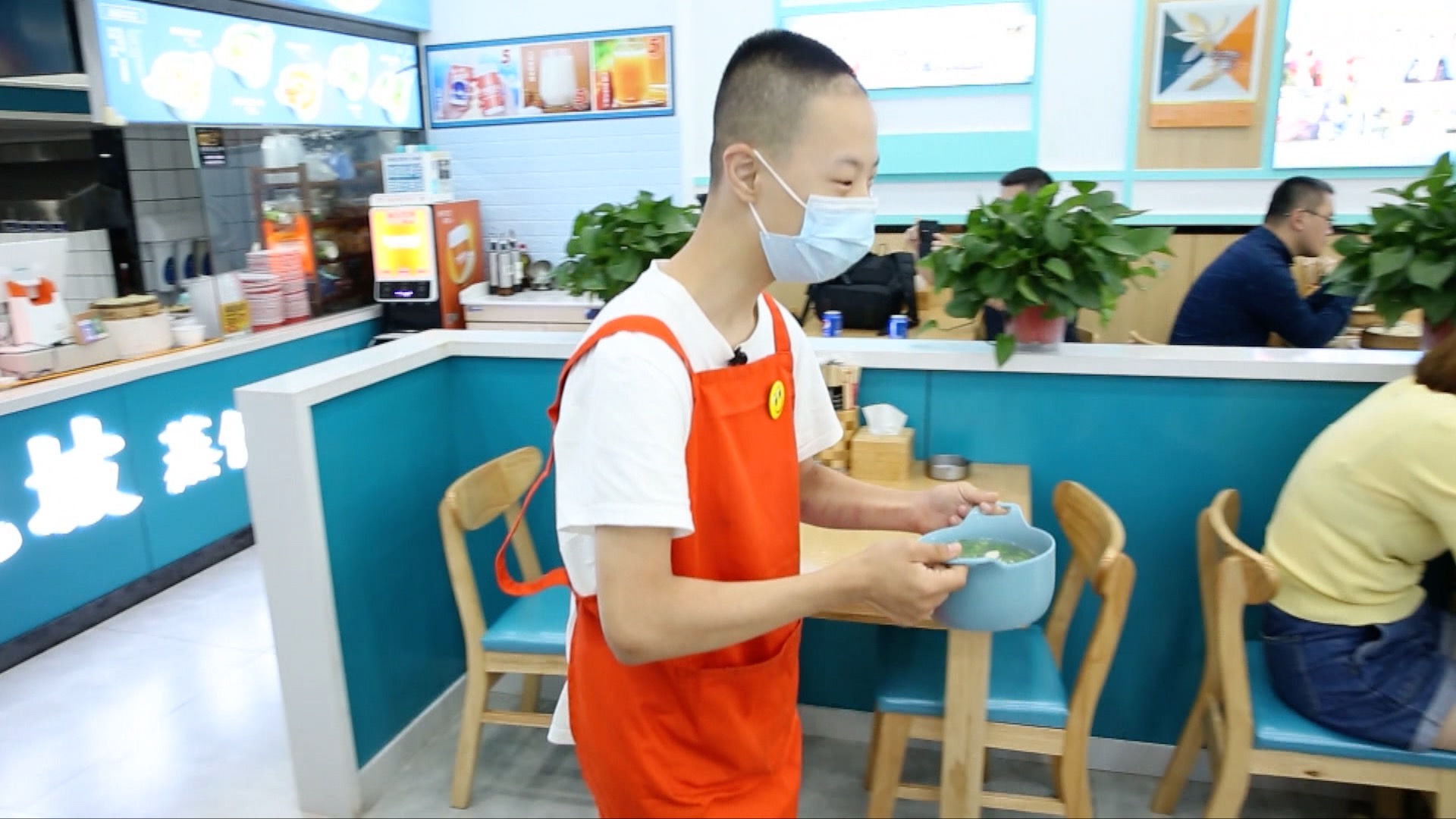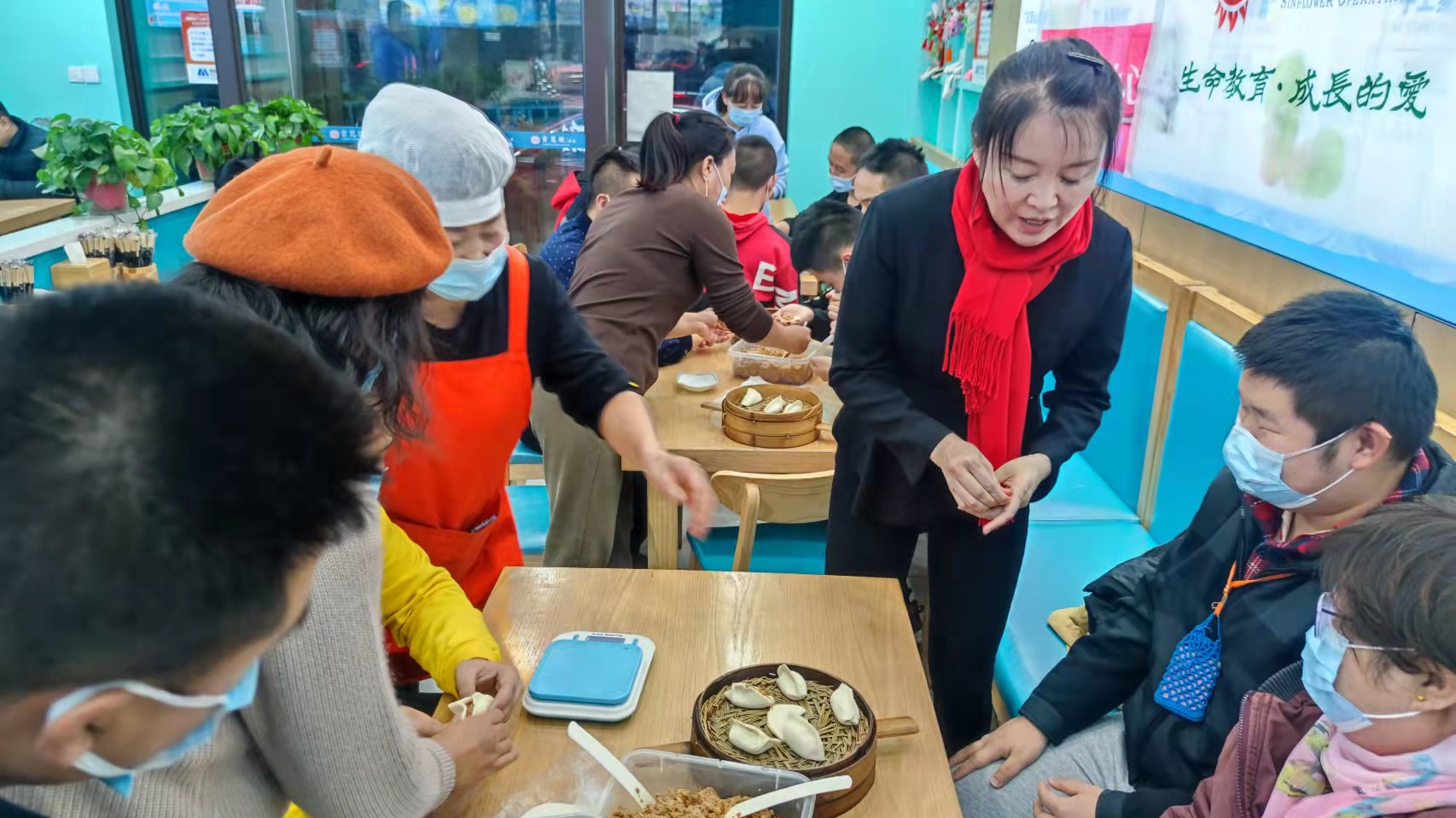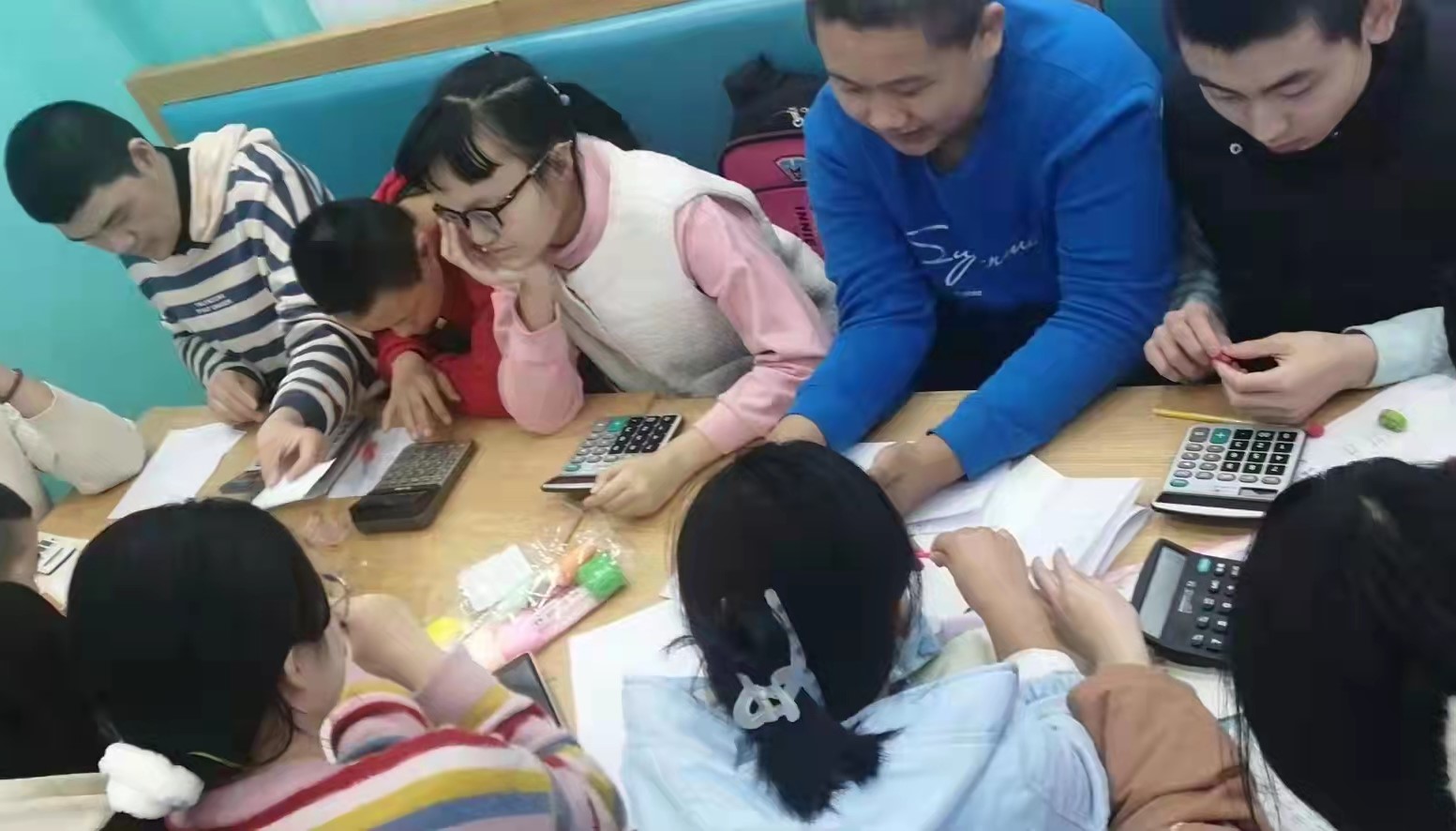03:12

When Wang Chunzhi saw her son getting off a bus outside her restaurant last year, tears began rolling down her cheeks. That was the first time her son rode a bus alone.
Liu Hongxu, 15, has been diagnosed with Down syndrome, a condition in which a child born with an extra copy of chromosome 21 faces physical and mental developmental delays and disabilities.
Wang quit her job as a tailor at a high-end clothing shop immediately after her son's diagnosis. She knew her life was going to change.
Wang's restaurant, located in the city of Changchun in northeast China's Jilin Province, specializes in steamed dumplings. Wang takes care of dumpling production while her son helps with simple tasks such as peeling potatoes and sometimes serving the customers.
Her fellow chefs also have children with intellectual disabilities, such as autism and cerebral palsy.
"We really want to make it successful because the restaurant can be a place where similar families assist each other," said Wang.

Wang Chunzhi (R) talks to her colleagues at her dumpling restaurant in Changchun, northeast China's Jilin Province, June 30, 2021. /Wang Chunzhi
Wang Chunzhi (R) talks to her colleagues at her dumpling restaurant in Changchun, northeast China's Jilin Province, June 30, 2021. /Wang Chunzhi
Wang met these families through activities organized for households of people with intellectual disabilities in the city. Parents would take their children to play games in parks, visit universities and museums, or learn buying and selling at simulated markets.
It is also through these activities that Wang joined an entrepreneurial project of opening a dumpling restaurant. The project was proposed by activity organizer Xu Xu, who has been helping persons with intellectual disabilities for over six years.
"In Changchun, over half of the persons with intellectual disabilities need round-the-clock care, meaning at least one parent needs to stay home at all times. In most cases, it is the mother who gives up her career," said Xu. She said she has observed that persons with intellectual disabilities have the potential to be self-reliant.
Making dumplings is one of the ways to help this group acquire vocational skills, so Xu came up with the idea of opening a steamed dumpling restaurant where women could train their kids while on the job. Persons with intellectual disabilities could do a lot in a restaurant if they were trained properly, she said.

Xu Xu (C) shows how to prepare dumplings during a training event in Wang Chunzhi's restaurant, November 29, 2021. /Xu Xu
Xu Xu (C) shows how to prepare dumplings during a training event in Wang Chunzhi's restaurant, November 29, 2021. /Xu Xu
"The restaurant provides a platform for persons with intellectual disabilities to practice skills and integrate into society, which parents value," said Xu.
The restaurant became popular due to its reasonable prices and good taste coupled with a good cause, so much so that it led to the opening of nine more steamed dumpling restaurants under the same brand in the city.
Some are run by families of persons with intellectual disabilities while others are operated by advocates of rights for this group. All restaurants prioritize employment for families of persons with intellectual disabilities.

Volunteers from Changchun Guanghua University teach persons with intellectual disabilities how to use a calculator in Wang Chunzhi's restaurant, December 10, 2021. /Lyu Ankang
Volunteers from Changchun Guanghua University teach persons with intellectual disabilities how to use a calculator in Wang Chunzhi's restaurant, December 10, 2021. /Lyu Ankang
Presently, there are nearly 20 million persons with intellectual disabilities in China and their employment rate is the lowest among persons with disabilities.
Pilot programs to promote employment for persons with intellectual disabilities were introduced in cities such as Beijing and Guangzhou from 2014 to 2016. About 140 people were employed through these programs. However, the employment situation for this group didn't improve much in following years.
The employment rate of persons with intellectual disabilities over the age of 16 is about 4 percent in Guangzhou, a metropolis in south China's Guangdong Province, even though 60 percent of them wanted to be employed, according to a survey conducted in 2019 by the Guangdong Association of Persons with Intellectual Disabilities and their Relatives.
Unemployed and isolated from the society, they became one of the groups most vulnerable to falling into poverty because of the heavy burden of rehabilitation and care on their families.
By the end of 2020, China had lifted 7 million persons with disabilities out of absolute poverty. To prevent them from returning to poverty, China's latest policies are focused on developing their vocational skills and supporting them to get employed or engage in other entrepreneurial pursuits. The government supports them in areas such as facilities and equipment, social insurance subsidies and financial credit.
Before the steamed dumpling restaurant, Xu also helped persons with intellectual disabilities increase income through projects, such as opening flower shops, selling second-hand books and making handicrafts.
"It is difficult for persons with intellectual disabilities to integrate into society, but it is easier for the society to care for their families. We could take the initiative to create opportunities for them," said Xu.
Writer: Du Junzhi
Video editor: Yang Yiren
Editor: Zeng Ziyi

